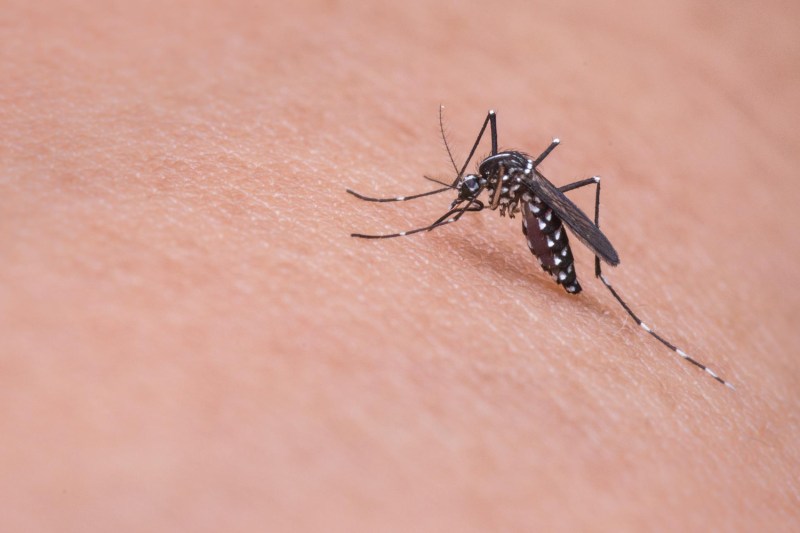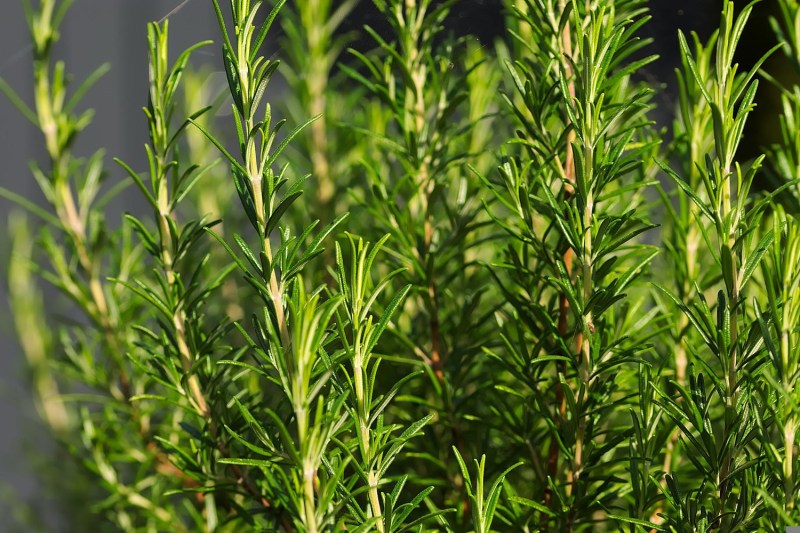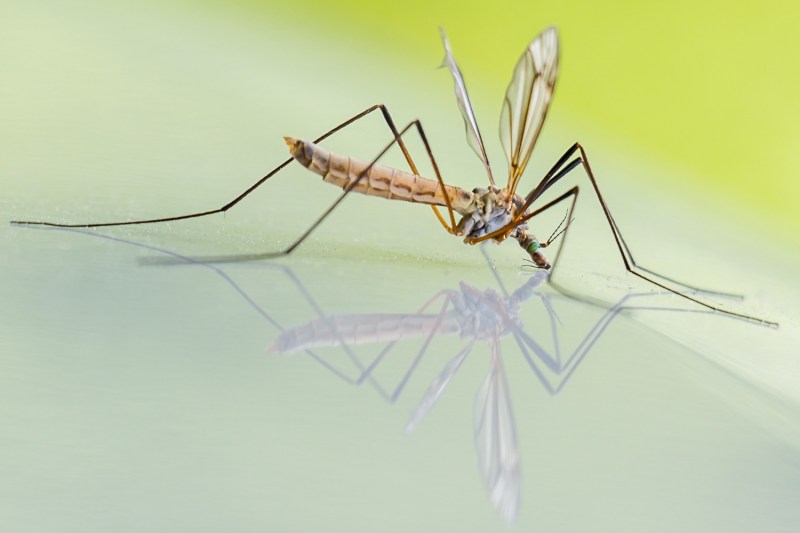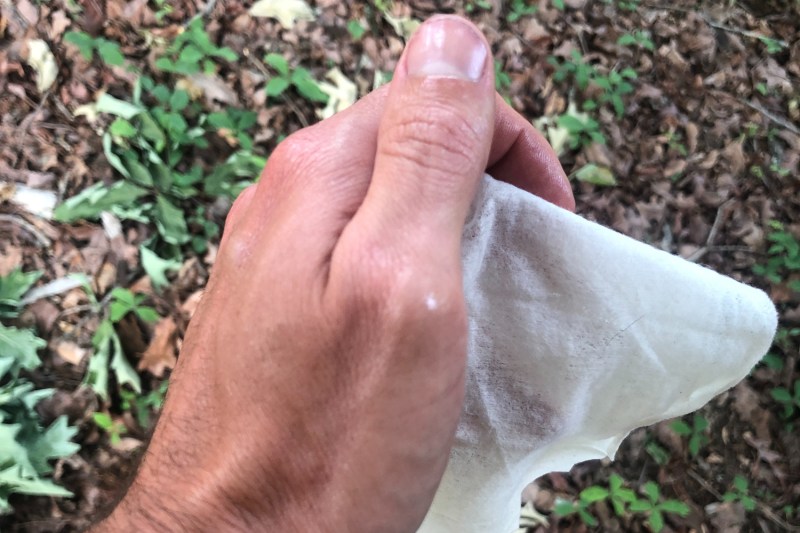I’ll be blunt here: There are few products on the market that make my eyes roll harder than essential oils. Despite their claims, most essential oils are right up there with healing crystals, astrology, and power balance bracelets in terms of their usefulness, and there’s no short supply of scientific evidence or first-hand testimony to support that statement.
So, naturally, you can imagine my surprise when I saw that manufacturing giant SC Johnson (which makes some of the best bug-busting products on the market including OFF! mosquito repellants and Raid wasp and hornet killer) had rolled out STEM, an all-natural mosquito repellant relying entirely on essential oils to keep bites off your body.
Had SC Johnson finally found an all-natural solution to the mosquito dilemma? To date, the only proven and EPA-approved essential oil for use against mosquitos comes from lemon eucalyptus, because it contains the compound PMD (para-menthane-diol), which is also an approved repellant. But lemon eucalyptus isn’t part of STEM’s essential oil cocktail. I decided to repeatedly douse myself in STEM repellant and venture into mosquito-infested lands to find out firsthand.
What Is STEM Mosquito Repellent?

STEM mosquito repellent is an alternative bug spray formula that’s made entirely from natural ingredients. STEM claims its mosquito repellant can keep biting bugs at bay for up to 90 minutes at a time without the use of any synthetic chemicals by harnessing the power of essential oils.
STEM comes in either a spray bottle (both 2- and 4-ounce sizes are available) or as a box of 10 individually packaged wipes. Unlike most mosquito repellents, STEM is exempt from EPA oversight due to its lack of EPA-registered ingredients.
How Does It Work?

STEM Mosquito Repellent
STEM repellent claims to repel mosquitos by using a proprietary blend of natural essential oils. The specific blend of oils used in STEM mosquito repellent is as follows:
- Rosemary oil: 1.50%
- Citronella oil: 0.95%
- Geranium oil: 0.75%
- Cedarwood oil: 0.70%
- Peppermint oil: 0.60%
- Lemongrass oil: 0.25%
The rest of the liquid in the bottle is actually soybean oil, which accounts for roughly 95% of the total volume.
What Are the Features of STEM Mosquito Repellent?
- Available in spritz-style spray bottles or convenient, portable wipes
- Uses an all-natural essential oil blend in a soybean oil carrier
- DEET-free, if you’re into that
- Advertised to protect for up to 90 minutes
What Do I Like About STEM Repellent
- Wipes are portable and convenient
- Fresh (albeit strong) scent
- … That’s about it
What I Don’t Like About STEM Repellent
- Doesn’t repel mosquitos
- Feels oily on the skin until washed off
- Overspray leaves persistent oil spots on clothing
- More expensive than many products that actually work
FAQs About STEM Mosquito Repellent

Anytime an all-natural product is brought to market, you’re going to get questions. Here are some of the most common I was able to find pertaining to STEM and similar essential-oil-based repellents.
Does STEM Mosquito Repellent Work?
In my experience, the answer is an emphatic “no.” My experience wearing STEM (as well as those in my group) was no different from wearing nothing at all: I immediately got lots of mosquito bites, regardless of how much I wore or how recently I’d applied STEM. I’ve requested data supporting the effectiveness of STEM repellent from the team, but as of this writing, they have not been able to provide any evidence of the product’s effectiveness.
What Is the Best Essential Oil for Mosquito Repellent?
Generally speaking, I don’t recommend using essential oils at all for repelling bugs, but if you’re hell-bent on the idea, you should stick with lemon eucalyptus oil, as it’s the only one recommended by the CDC. Essential oils have a reputation for causing adverse reactions when applied in high concentrations, so I also recommend leaving the formula up to accountable professionals.
Why Does STEM Mosquito Repellent Have So Many Positive Reviews Online?
This question comes straight from your author, as will the answer.
In short, the overwhelming majority of 4- and 5-star reviews you’ll find for this product are the result of some influencer program called “Influenster,” which sends out free product samples to influencers in exchange for reviews. On the website, Influenster refers to themselves as being “home to over 55 million honest reviews,” which is laughable, considering most of the positive reviews for STEM repellent start with something like, “I received this product in the middle of winter and there are no mosquitoes out, but…” or “I can’t speak to its ability to repel mosquitoes yet, but…” … (insert excuse here). 5 stars!
Should You Buy STEM Mosquito Repellent?

Based on my personal experience with this product, I can’t recommend it in good conscience. I find it a little alarming that so many “influential” people have no issue firing off a positive review for a product that is intended to prevent serious diseases like Lyme Disease, West Nile Virus, and Zika Virus.
I’m also unclear as to why a successful company like SC Johnson would take a gamble by rolling out an essential-oil-based product that simply doesn’t work, especially when it already has a staple of safe and effective mosquito repellants in its portfolio. STEM products are advertised as being “DEET-free” and “safe for use around kids and pets,” but if they don’t protect you from mosquitoes, how safe can they be?
For the record, DEET is completely safe and has been proven effective countless times over for both humans and the environment. Personally, I prefer (and highly recommend) using a picaridin-based mosquito repellent, because picaridin is as effective (if not more effective) than DEET, has no odor or residue, and is also easier on your expensive outdoors gear (DEET can damage DWR coatings on technical shells and shelters, and has also been known to create pitting on plastic surfaces).
Regardless of what your horoscope or some influencer tells you, you should skip this one entirely. If you want an all-natural alternative, I can confirm that OFF! Botanicals works well (although you’ll need to apply it more often), and I would even argue that picaridin-based repellents are “all-natural enough,” considering they’re based on compounds found in black pepper plants.




